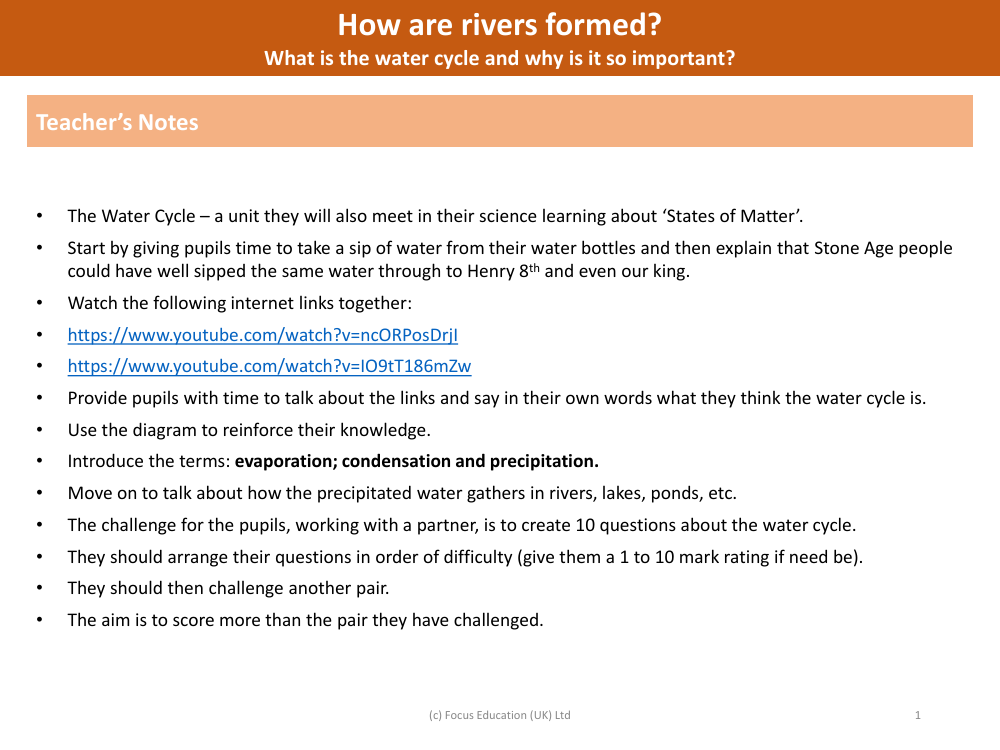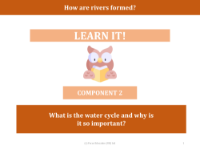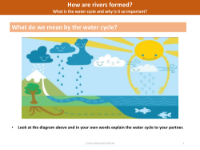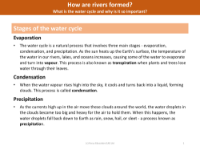What is a water cycle and why is it so important? - Teacher notes

Geography Resource Description
The water cycle is a fundamental concept in understanding how water moves through the environment, transitioning between the states of matter—solid, liquid, and gas. It is introduced to pupils within the context of their science lessons on 'States of Matter'. To bring this concept to life, teachers may start with a relatable activity: asking pupils to take a sip of water and consider the fascinating idea that the same water might have been drunk by people throughout history, from the Stone Age to the reign of Henry VIII, and even by royalty in our current times. This exercise aims to spark curiosity about the water's journey through time and space.
In order to deepen their understanding, pupils are encouraged to watch educational videos about the water cycle and discuss what they have learned. These discussions help them articulate their understanding of the process in their own words. Key terms such as 'evaporation', 'condensation', and 'precipitation' are introduced, and diagrams are used to visually reinforce these concepts. Pupils then explore how water, once it precipitates, collects in various natural bodies like rivers, lakes, and ponds. The practical application of this knowledge comes in the form of a challenge where pupils, working in pairs, create a series of questions about the water cycle. They are tasked to rank these questions by difficulty and then quiz another pair, aiming to score higher. This interactive approach not only tests their comprehension but also encourages collaborative learning and critical thinking.




